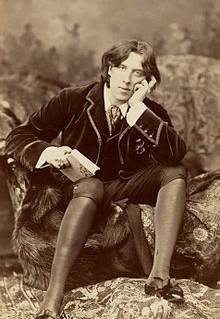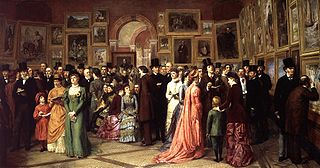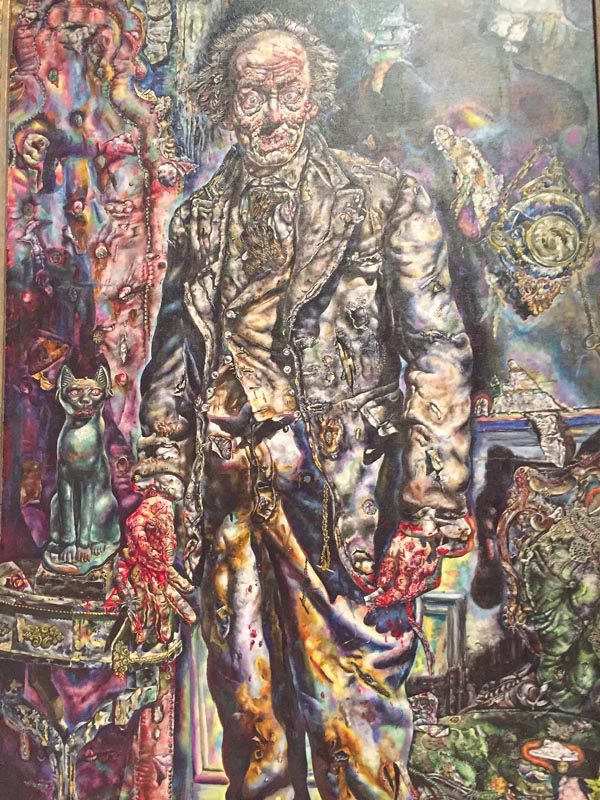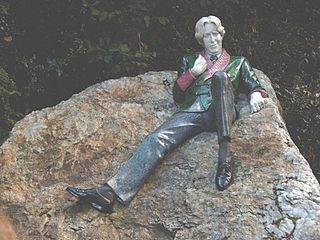Wish We’d Said That

Photo of Wilde by Napoleon Sarony (1882)
Oscar Wilde (16 October 1854 to 30 November 1900)
The Divine Oscar is recalled daily by defamation lawyers, cautioning their prospective clients. But we prefer to recall his playfulness, his essential kindness, and gargantuan wit. Richard Ellmann, in his biography of Wilde (1987), said of him that he “had to live his life twice over, first in slow motion, than at top speed. During the first period he was a scapegrace, during the second a scapegoat…His language is his finest achievement. It is fluent with concession and rejection. It takes what has been ponderously said and remakes it according to a new perspective and a new principle…His wit is an agent of renewal, as pertinent now as a hundred years ago.”
A few bon mots from the mind of Wilde will more than suffice to remember his brilliance:
“I took pleasure where it pleased me, and passed on. I forgot that every little action of the common day makes or unmakes character, and that therefore what one has done in the secret chamber one has some day to cry aloud on the housetops.” (De Profundis)
“Many a woman has a past, but I am told she has at least a dozen, and that they all fit.” (Lady Windermere’s Fan)
“More than half of modern culture depends on what one shouldn’t read.” (The Importance of Being Earnest)
“The nineteenth century dislike of realism is the rage of Caliban seeing his own face in a glass.” (The Picture of Dorian Gray)
A cynic being a “man who knows the price of everything, and the value of nothing.” (Lady Windermere’s Fan)
“He now gave up all hope of ever frightening this rude American family, and contented himself, as a rule, with creeping about the passages in list slippers, with a thick red muffler round his throat for fear of draughts, and a small arquebuse, in case he should be attacked by the twins.” (The Canterville Ghost)
“We are all in the gutter, but some of us are looking at the stars.” (Lady Windermere’s Fan)
“The English country gentleman galloping after a fox — the unspeakable in full pursuit of the uneatable.” (A Woman of No Importance)
“The Renaissance knew of strange manners of poisoning – poisoning by a helmet and a lighted torch, by an embroidered glove and a jewelled fan, by a gilded pomander and by an amber chain. Dorian Gray had been poisoned by a book. There were moments when he looked on evil simply as a mode through which he could realize his conception of the beautiful.” (The Picture of Dorian Gray)
“…don’t be led astray into the paths of virtue.” (Lady Windermere’s Fan)
“I never put off till tomorrow what I can possibly do – the day after.” (If Oscar didn’t actually say this, we wish that he had.)
“Ignorance is like a delicate exotic fruit; touch it and the bloom is gone.” (The Importance of Being Earnest)
“Thou wouldst have none of me, Jokanaan. Thou rejectedst me. Thou didst speak evil words against me. Thou didst bear thyself toward me as to a harlot, as to a woman that is a wanton, to me, Salomé, daughter of Herodias, Princess of Judea! Well, I still live, but thou art dead, and thy head belongs to me.” (Salomé)
“I think that life is far too important a thing ever to talk seriously about it.” (Lady Windermere’s Fan)
“Nothing succeeds like excess.” (A Woman of No Importance)
“LADY BRACKNELL: Now to minor matters. Are your parents living? JACK: I have lost both my parents. LADY BRACKNELL: Both? …That seems like carelessness.” (The Importance of Being Earnest)
“The vilest deeds like poison weeds
Bloom well in prison-air:
It is only what is good in Man
That wastes and withers there:
Pale Anguish keeps the heavy gate,
And the Warder is Despair.” (The Ballad of Reading Gaol)
“All art is quite useless.” (The Picture of Dorian Gray)
Leave a comment...
While your email address is required to post a comment, it will NOT be published.





2 Comments